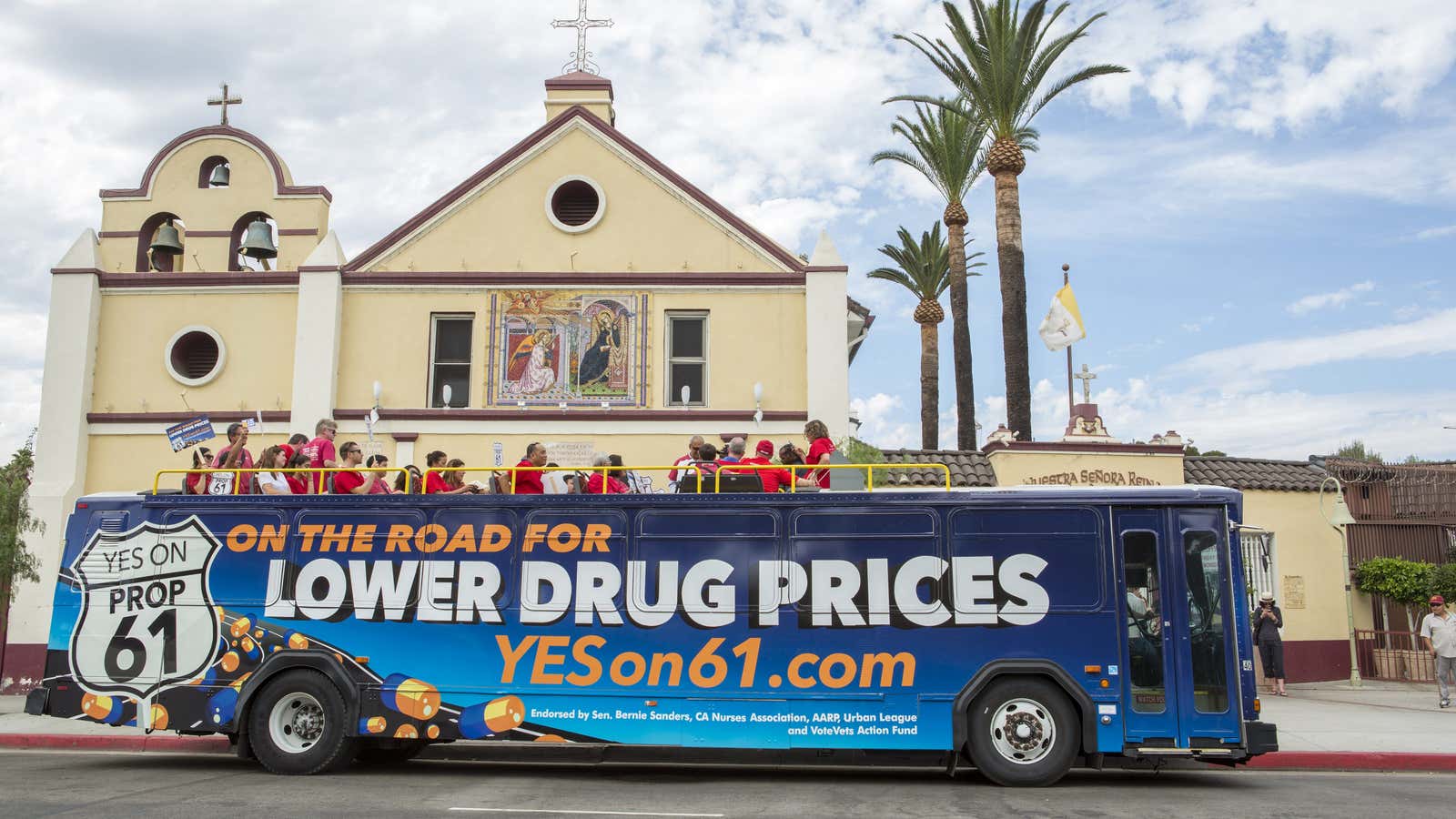One of the election season’s most fiercely fought campaigns is over a California ballot initiative that promises to control drug prices, but would affect only a fraction of the state.
Yet it’s making the drug industry very nervous.
Proposition 61 requires California state agencies to pay no more for drugs than the price paid by the US Department of Veteran Affairs, which, by law, receives a 24% discount on drugs, and can negotiate even lower prices. While the cost savings could be significant, most Californians don’t receive drugs from the agencies covered, which include universities, state prisons, and some parts of the state’s low-income insurance program, Medi-Cal. Depending on whose numbers you believe, the number of people covered ranges from 4.4 million to 7 million, in a state with about 40 million residents.
Despite the relatively small impact, the drug industry has been working furiously to defeat the referendum, raising $109 million as of Nov. 2, according to Ballotpedia, a website which tracks such things. Merck & Co., Johnson & Johnson, and Pfizer each contributed at least $9.3 million to the campaign, while dozens of other companies also have chipped in. Combined with the $16.9 million spent by advocates—mostly the AIDS Healthcare Foundation, which runs a chain of clinics—it’s the most costly ballot initiative in US history.
Opponents say the fixing of drug costs in one place will just push them up elsewhere, and could wind up making drugs more expensive for most Californians, while limiting choices for the covered agencies.
Supporters, who include US senator Bernie Sanders of Vermont, say it will make drugs more affordable for at least some in the state, and deal a blow to an industry that profits while many Americans struggle to afford prescription drugs.
The initiative’s impact outside California— its “reverberations,” as Sanders puts it— is why the drug industry is determined to beat the ballot initiative.
Pharma companies, never popular, are in the crosshairs of politicians now more than ever. Accusations of price gouging by Martin Shkreli’s Turing Pharmaceutical and Mylan, maker of the EpiPen, have made the industry vulnerable to new regulations to cap price increases. Drug makers fear price controls from a Clinton presidency—shares fall when she criticizes the industry. Even Trump says he supports importing drugs from overseas to lower prices. Prop 61 would give other states encouragement to pass similar initiatives, said Michael Yee, an analyst at RBC Capital Markets. “We believe (Prop 61) creates a slippery slope,” Yee wrote in a note to investors.
Initial polls showed Prop 61 supporters with a significant advantage, but the polls have tightened substantially in the closing weeks—no doubt due to the flood of campaign ads over the state’s airwaves— and they are now deadlocked at about 47% both in favor and opposed. A win may change the national conversation over drug prices. A loss will be a strong reminder of the power of the pharmaceutical lobby.
